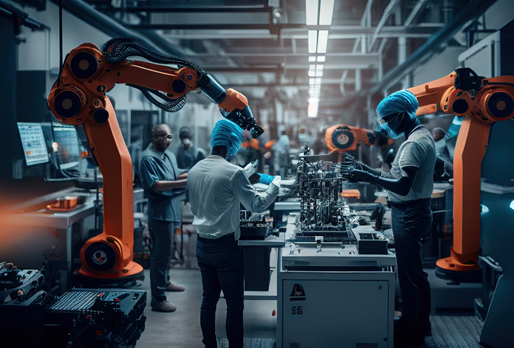Introduction
The manufacturing industry is the backbone of the global economy, responsible for producing the goods that sustain modern life. However, this sector faces numerous challenges in terms of learning and development. As technology evolves and global competition intensifies, manufacturers must adapt and invest in the skill development of their workforce. This article explores the key challenges faced by the manufacturing industry in fostering learning and development among its employees.
1. Technological Advancements
Make your inbox more interesting.
Subscribe to our newsletterOne of the primary challenges in the manufacturing industry is the rapid pace of technological advancements. Automation, robotics, the Internet of Things (IoT), and artificial intelligence (AI) have revolutionized production processes. While these innovations can increase efficiency, they also require a workforce with new skills. Manufacturers must invest in training programs to upskill their employees, making them proficient in working alongside advanced technologies.
2. Skill Shortages
The manufacturing industry has struggled with skill shortages for years. As older workers retire, there is a shortage of skilled labor to replace them. Additionally, the skills required in modern manufacturing are evolving, making it challenging to find workers with the right qualifications. This shortage can hinder productivity and innovation. Companies must invest in workforce planning and recruitment strategies while offering robust training programs to bridge the skill gap.
3. Aging Workforce
Many manufacturing companies face an aging workforce. As experienced employees retire, they take valuable knowledge and skills with them. It is crucial to implement knowledge transfer programs that capture this expertise before it leaves the organization. Additionally, these companies must focus on developing younger employees to ensure a sustainable talent pipeline.
4. Safety and Compliance Training
Manufacturing environments are often hazardous, requiring rigorous safety and compliance standards. Ensuring that all employees are well-trained in safety protocols is a top priority. The challenge lies in keeping training up to date with changing regulations and technologies. Continuous learning initiatives are necessary to prevent accidents, injuries, and legal issues.
5. Globalization
The globalization of the manufacturing industry introduces cultural and logistical challenges to learning and development. Companies often have diverse workforces spread across multiple locations and time zones. Effective training and development programs must account for these differences, providing consistent and accessible learning opportunities for all employees.
6. Cost Constraints
Manufacturing companies are under constant pressure to optimize costs. This often leads to budget constraints when it comes to employee training and development. Investing in learning and development initiatives may seem expensive in the short term, but it is essential for long-term competitiveness. Balancing cost-efficiency with the need for training is a critical challenge.
7. Resistance to Change
Employees in the manufacturing industry may resist changes in work processes, especially if they perceive them as threatening their job security or requiring additional effort. Overcoming this resistance and fostering a culture of continuous learning can be challenging. Companies must communicate the benefits of learning and development while providing the necessary support and incentives.
Conclusion
The manufacturing industry faces a multitude of challenges when it comes to learning and development. However, addressing these challenges is essential for companies to remain competitive in an ever-evolving global market. By embracing technological advancements, bridging skill gaps, and fostering a culture of learning, manufacturers can empower their workforce to adapt and thrive in the dynamic landscape of modern manufacturing. Effective learning and development strategies will not only benefit individual employees but also contribute to the long-term success and sustainability of the industry as a whole.



